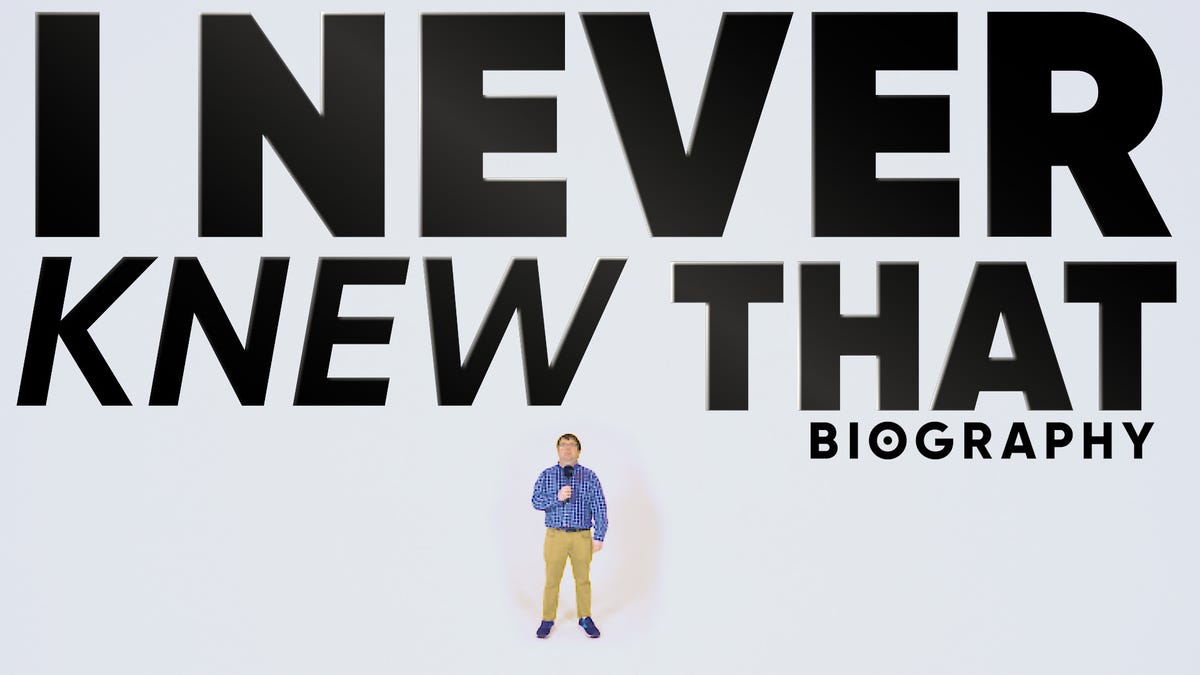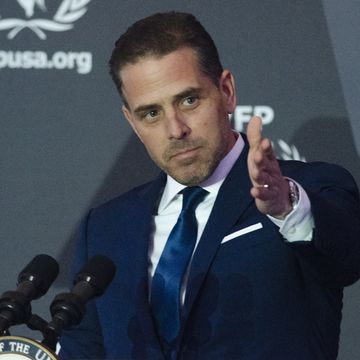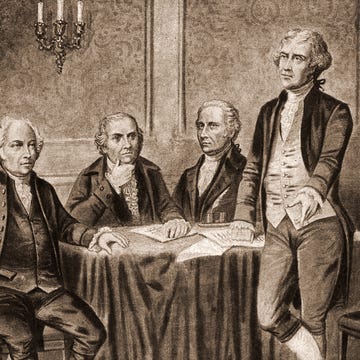1957–present
Who Is Andrew Cuomo?
Andrew Cuomo served as the 56th governor of New York from 2011 until his 2021 resignation. Prior to his role as governor, the Democratic politician served as secretary of the U.S. Department of Housing and Urban Development under President Bill Clinton. In 2007, Cuomo became New York state’s attorney general, working alongside former Governor Eliot Spitzer. Cuomo is the son of former New York Governor Mario Cuomo and the older brother of news anchor Chris Cuomo. During his governorship, Cuomo focused on LGBTQ rights, including marriage equality; women’s rights; and economic stimulus but was criticized for a nursing home policy during the COVID-19 pandemic as well as a sexual harassment scandal. The blowback forced Cuomo to resign as New York governor in August 2021. He is now running for mayor of New York City as an independent.
Quick Facts
FULL NAME: Andrew Mark Cuomo
BORN: December 6, 1957
BIRTHPLACE: New York, New York
SPOUSE: Kerry Kennedy (1990–2005)
CHILDREN: Cara, Mariah, and Michaela
ASTROLOGICAL SIGN: Sagittarius
Early Life
Andrew Mark Cuomo was born in New York City on December 6, 1957, to mother Matilda Raffa Cuomo and father Mario Cuomo, the former governor of New York and the son of Italian immigrants. After graduating from Archbishop Molloy High School in 1975, Andrew enrolled at Fordham University, graduating with his bachelor’s degree in 1979. He went on to attend Albany Law School, where he received his juris doctorate degree in 1982.
Political Rise
Cuomo served as his father’s campaign manager during Mario Cuomo’s race to become the 52nd governor of New York. After the elder Cuomo was elected to the first of three terms, in 1982, Andrew managed his father’s transition committee then became a top adviser.
In 1984, Cuomo began serving as assistant district attorney of Manhattan before becoming a partner in the law firm Blutrich, Falcone & Miller. Transitioning back to public service, he founded the state’s Housing Enterprise for the Less Privileged (HELP) in 1986. According to Cuomo’s website, HELP has since become “one of the nation’s largest builders and operators of transitional and low income housing.”
In 1993, Cuomo became an assistant secretary at the U.S. Department of Housing and Urban Development (HUD) under President Bill Clinton. He took over as HUD secretary in 1997 and served in the role until 2001.
Cuomo made his first run for the New York governorship in 2002 but withdrew from the race after making a controversial comment about then-Governor George Pataki’s lack of leadership following the terrorist attacks of September 11, 2001. It was perceived as a major gaffe for the Democratic hopeful, and Cuomo dropped out of the public eye for a few years to work in real estate.
Cuomo returned to the spotlight by running for the position of New York attorney general in 2006. Promising to crack down on corrupt state government officials and enforce environmental laws, he easily defeated his Republican opponent, Jeanine Pirro.
Working alongside New York Governor Eliot Spitzer, Cuomo earned praise for fulfilling his campaign pledge to address corruption, notably filing a civil lawsuit against New York Senate Majority Leader Pedro Espada Jr. for stealing $14 million from his nonprofit health clinic. Additionally, his investigations prompted reforms within the state pension system and national student loan organizations.
New York Governor
Following Spitzer’s resignation in the wake of a prostitution scandal, and the struggles of his successor, David Paterson, Cuomo launched a second bid for the state’s governorship in 2010. This time he emerged victorious, handily defeating his Republican opponent, Carl Paladino, to become the 56th governor of New York. Cuomo began his three-year term on January 1, 2011.
As New York’s top executive, Cuomo became known for focusing on LGBTQ rights, women’s rights, and economic improvements. He made a point of submitting a balanced budget every year on schedule and lowered corporate and manufacturing taxes to spur job growth. In July 2011, just two years after state lawmakers had rejected a marriage equality law, the governor signed a bill that made New York the largest state to legalize same-sex marriage. Taking a stance on another controversial issue, he legalized medical marijuana in New York in September 2014.
In other areas, Cuomo had less success. He established what was supposed to be an independent commission to investigate state government corruption in July 2013, but the commission was hampered by infighting and pressure from the governor’s office, before being abruptly shut down the following March. Additionally, Cuomo was accused of not doing enough to support fellow Democrats throughout the state.
Second Term
Despite his first-term struggles, Cuomo easily won reelection in 2014. He defeated his Republican opponent, Rob Astorino, by earning approximately 54 percent of the vote.
Not long after winning reelection, Cuomo took a bold step on a controversial environmental issue: He officially approved the New York Department of Environmental Conservation’s call for a ban on hydraulic fracturing, or fracking, which is used to obtain natural gas and oil. New York became the second state to ban the practice.
Turning toward infrastructure, the governor announced in 2013 the beginning of formal construction of a replacement for the Tappan Zee Bridge over the Hudson River north of New York City. The renamed Governor Mario M. Cuomo Bridge opened one side for west/northbound traffic in August 2017, with the other direction becoming operational the following year.
Additionally, the governor unveiled a $4 billion renovation plan for LaGuardia Airport in Queens, holding a groundbreaking ceremony in June 2016. That year Cuomo also enacted legislation to speed up foreclosure of neglected “zombie properties” and published a Consumer Bill of Rights designed to protect homeowners facing foreclosure.
Third Term
Up for reelection in 2018, Cuomo found himself competing against former Sex and the City actor Cynthia Nixon in the Democratic primary. The incumbent caused a stir during an August speech when, noting then-President Donald Trump’s mantra to “make America great again,” he said that the country was “never that great.” Cuomo added: “We have not reached greatness. We will reach greatness when every American is fully engaged. We will reach greatness when discrimination and stereotyping of women, 51 percent of our population, is gone, and every woman’s full potential is realized and unleashed and every woman is making her full contribution.”
Although Trump and his political allies ran with the controversial aspect of his comments, Cuomo defeated Nixon in the primary and again cruised to victory in the general election, topping Republican Marc Molinaro with nearly 60 percent of the vote in November.
Cuomo waded back into controversial waters with the passage of the Reproductive Health Act in January 2019. Responding to critics who accused him of lifting virtually all restrictions on abortion, he clarified his position in a February op-ed in The New York Times, emphasizing that the law permitted third-trimester abortions only when the woman’s life or health were at risk.
Coronavirus Response and Nursing Home Scandal
Cuomo surfaced in the national spotlight following the confirmation of the first coronavirus patient in New York on March 1, 2020. Although he pushed New York lawmakers into quickly approving $40 million in emergency funding to contain the virus, the number of confirmed patients exploded in the following weeks, turning New York into the center of the COVID-19 pandemic with more than 25,000 cases by March 24.
The governor publicly feuded with President Trump as he sought to acquire more resources for his state, including a request for 30,000 ventilators for hospitals. His request for assistance from the Army Corps of Engineers was heeded, with the corps quickly transforming the massive Jacob K. Javits Center on Manhattan’s west side into a makeshift hospital by the end of March. In mid-April, Cuomo issued an order that required New Yorkers to wear face masks in public places where social distancing wasn’t possible.
Lauded by some for his regular public addresses as the pandemic raged on, Cuomo eventually came under fire for his actions regarding New York’s nursing homes. During the spring of 2020, Cuomo required nursing homes to take back residents who had recovered from the virus. Critics said that it increased the number of COVID-related deaths among nursing home residents. Cuomo and his administration later were accused of undercounting nursing home deaths by several thousand people.
Sexual Harassment Claims and Resignation
In 2021, multiple women, including current and former staffers, came forward and accused Cuomo of sexual harassment. Both Republicans and Democrats, including U.S. Senators Chuck Schumer and Kirsten Gillibrand of New York, called for his resignation. Cuomo apologized for acting “in a way that made people feel uncomfortable” but resisted calls for his resignation.
In August 2021, a 165-page report found that Cuomo sexually harassed multiple women and retaliated against one for going public. On August 10, Cuomo announced he was stepping down as governor. Lieutenant Governor Kathy Hochul was sworn in as his replacement on August 24.
Ex-Wife and Daughters
Cuomo is currently single, though he was previously married to Kerry Kennedy, the daughter of the late U.S. Attorney General Robert F. Kennedy and Ethel Kennedy. Cuomo and Kennedy’s wedding was held in Washington D.C. on June 9, 1990. During their marriage, the couple welcomed three daughters: twins Cara and Mariah followed by Michaela. The couple’s divorce was finalized in 2005.
That year, Cuomo began a long-term relationship with famous television chef Sandra Lee. However, the pair parted ways in 2019.
Quotes
- As my Sicilian grandfather used to say, you get more flies with honey than with vinegar, right?
- I believe women still face a glass ceiling that must be shattered.
- I believe we need to attract a new generation of the best and brightest to public service, and I believe that government can be a source of inspiration not degradation.
- I am fiscally prudent and socially progressive. I believe in protecting a woman’s right to choose. I believe in marriage equality.
Fact Check: We strive for accuracy and fairness. If you see something that doesn’t look right, contact us!
The Biography.com staff is a team of people-obsessed and news-hungry editors with decades of collective experience. We have worked as daily newspaper reporters, major national magazine editors, and as editors-in-chief of regional media publications. Among our ranks are book authors and award-winning journalists. Our staff also works with freelance writers, researchers, and other contributors to produce the smart, compelling profiles and articles you see on our site. To meet the team, visit our About Us page: https://www.biography.com/about/a43602329/about-us













